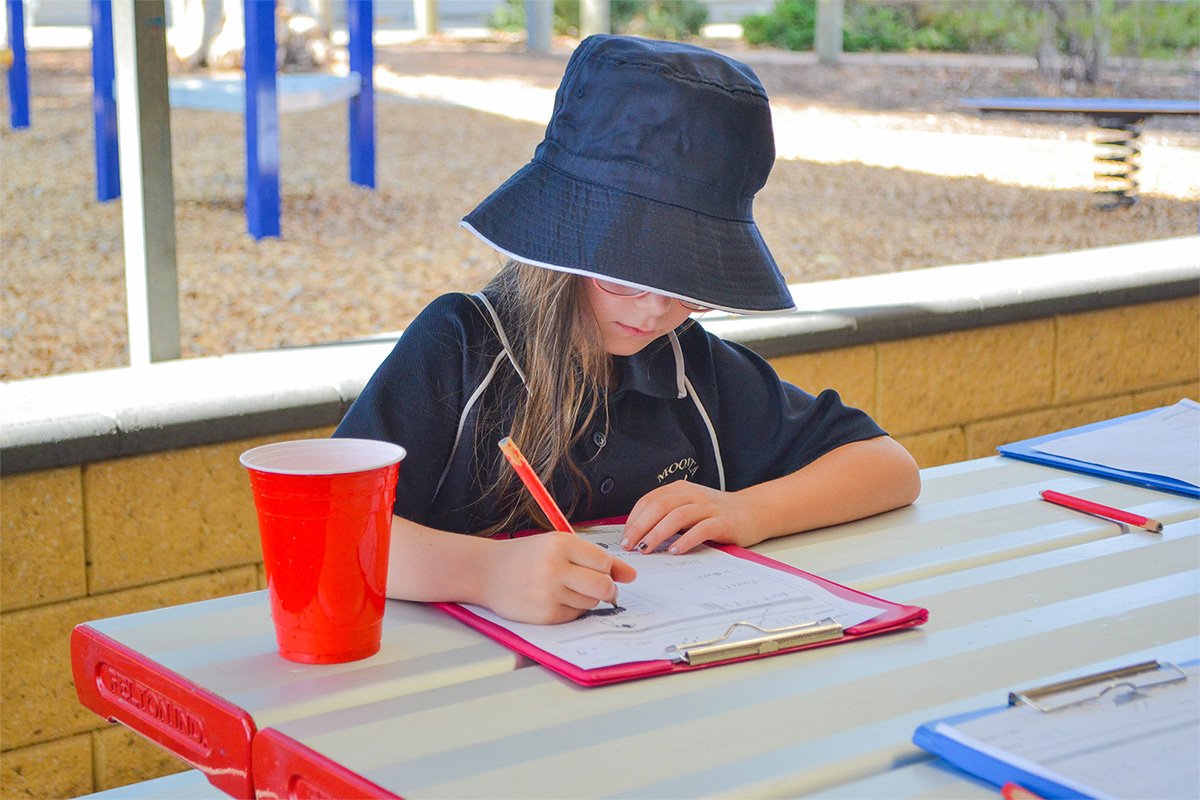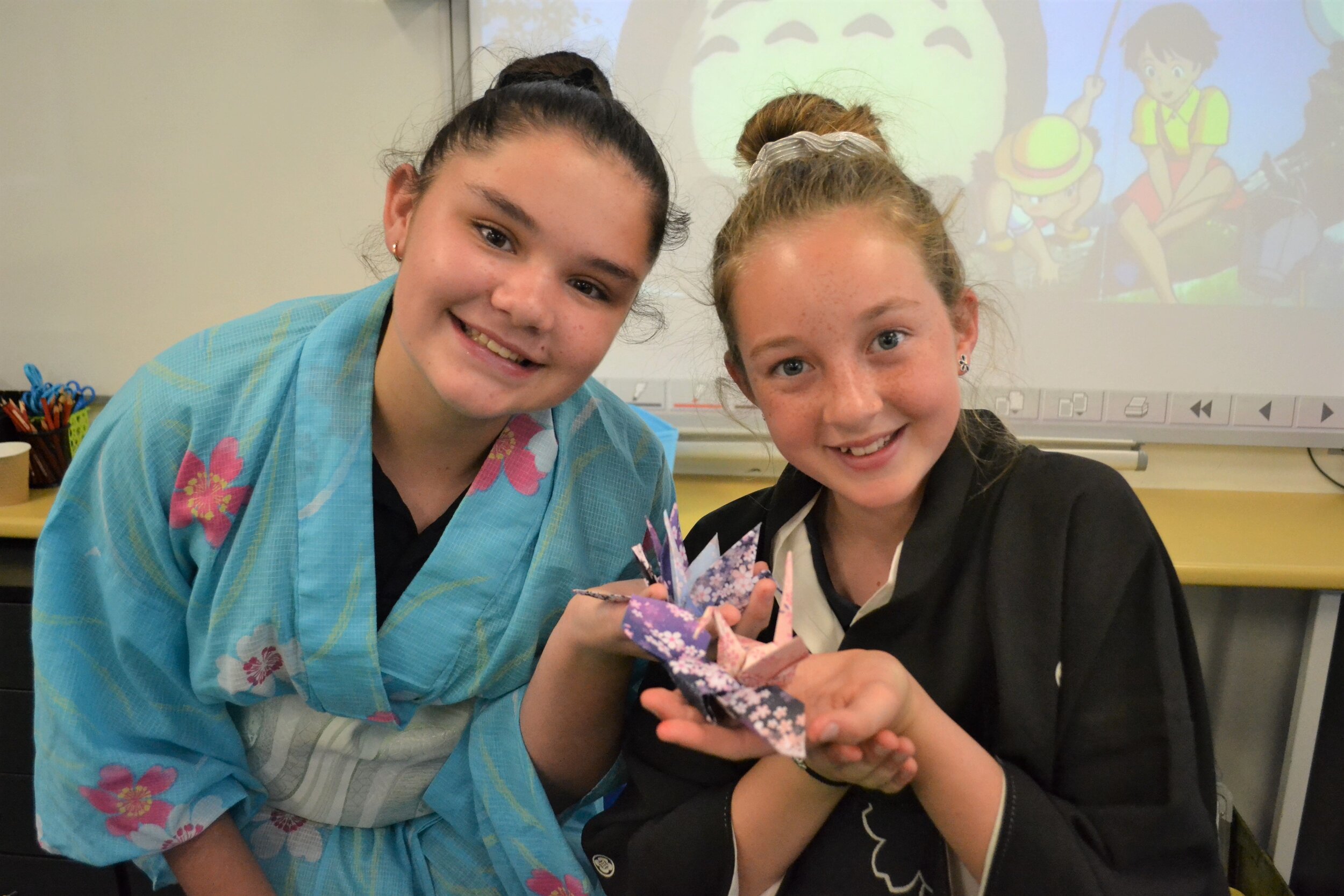
Curriculum
Primary School
Primary (Reception-Year 6)
The Primary School cohort of Moonta Area School consists of classes from Reception to Year 6 and our two District Special Classes (R-3 & 4-7). We partner closely with Moonta Kindergarten to support children as they transition to our school with a range of informal activities (Buddy Reading, playground visits, library activities), as well as our formal transition program run in Term 4 each year. We welcome enrolments at all year levels.
Students access all areas of the Australian Curriculum with learning structured in classrooms and specialist learning areas. Classroom teachers are responsible for English, Mathematics, Humanities and Social Sciences, Design and Technology (STEM), Science and Visual Art. All classes have a pod of iPads used to support learning in a variety of ways and every classroom has an interactive touch-screen television. Students have access to our IT suite when using computers as well as three 3D Printers used in a range of learning applications.
Specialist Learning Areas offered:
Performing Arts (Music, Drama, Dance & Media Arts)
Health and Physical Education
Japanese
Reception - Year 2 Classes
Our Junior Primary learning environments encourage curiosity and creativity with learning through purposeful play being a key element of each day. Literacy Blocks are held each day, consisting of Jolly Phonics/Jolly Grammar, reading, writing and spelling learning experiences. Our students are busy little learners who become more confident and independent throughout each year.
Guided Reading sessions are held at least three mornings each week where students work on specific reading strategies such as decoding words, comprehension and fluency. Students are grouped according to the various strategies they are focusing on, working with the class teacher, the SSO supporting the class, and independently. We encourage nightly reading at home to help practise reading strategies and develop a love of reading.
A typical day in an Early Years classroom may include:
Purposeful Play - intentional learning activities set up to encourage the development of oral language (speaking and listening), social skills and cooperation.
Group Time - singing, rhyming and games to help students develop their phonemic awareness (ability to hear sounds in words, such as h-a-t in the word hat).
Jolly Phonics/Jolly Grammar - a synthetic phonics program where children learn sounds (not in order of the alphabet) in sequence to begin blending sounds and start decoding (reading) words.
Reading - shared, partner and guided reading.
Numeracy activities - measuring, counting, comparing, predicting
Investigations - Art, Science, Geography, History, Design and Technology
Students engage in purposeful play where the teacher sets up a range of activities linked to current themes or learning focuses within the class. It might be a shop set when learning about money, a post office when learning about book making and writing, a hospital for learning about the human body, or a school. During these sessions students continue to develop social skills, sharing, turn-taking and their oral language (talking, asking questions).
Children will also participate in learning experiences to develop their mathematical (or numeracy) skills. Counting, weighing, measuring, comparing, money and fractions are common skills reception students practice. They learn to recognise numerals, count collections of items and group items based on their properties (shape, colour, number of sides etc). Often Science, Design and Technology and HASS are integrated, with our students regularly enjoying outdoor learning activities in the vegetable garden as well as nature play up in the scrub behind the kindy.
Years 3-6 Classes
Our Primary Years classrooms are engaging and diverse, catering to individual learning styles. Teachers use a combination of traditional and flexible seating options to support student agency in learning, encouraging students to choose their preferred learning style.
As with the Early Years, our Years 3-6 students have a Literacy Block, followed by Numeracy activities, and then usually a Science, HASS or Design and Technology lesson in the afternoon. Many of our primary classes teach these areas of the curriculum in an integrated way, through project-based learning using the Solution Fluency process.
Students are supported to research topics based on their curiosity and interests, with the emphasis being on developing inquiry skills such as:
Questioning
Evaluating information
Researching
Problem solving
There is a strong emphasis on STEM, with students becoming increasingly confident with coding, using Beebots and Botleys. Students use Maker’s Empire when designing and creating models and prototypes, which are then printed using our 3D printers.
A typical day in a Primary Years classroom may include:
Literacy block - podcasts, guided reading, Jolly Grammar & Spelling, writing
Daily fitness and Play is the Way strategy games
Numeracy activities - Big Ideas in Number, as well as conceptual lessons in all areas of the Mathematics Curriculum
STEM/Project-based learning
Specialist subject lessons
R-6 Learning Initiatives
-
Jolly Phonics (reference/website link to jollylearning.com or SPELD.com.au) and Jolly Grammar are the phonics, spelling and grammar programs used in R-6 to support student’s ability to blend and segment sounds in words, decode words, and learn to read and spell. They learn to transfer this knowledge in to their writing as they experiment with letter formation, mark making and forming words. All teachers completed targeted training in this program in 2020, with the emphasis on a consistent approach to the teaching of phonics, spelling and grammar across R-6 classes.
Jolly Phonics is a fun and child centred approach to teaching literacy through synthetic phonics. With actions for each of the 42 letter sounds, the multi-sensory method is very motivating for children and teachers, who can see their students achieve. The sounds are taught in a specific order (not alphabetically). This enables children to begin building words as early as possible.
The five skills taught in Jolly Phonics:
Learning the letter sounds: Children are taught the 42 main letter sounds. This includes alphabet sounds as well as digraphs such as sh, th, ai and ue.
Learning letter formation: Using different multi-sensory methods, children learn how to form and write the letters.
Blending: Children are taught how to blend the sounds together to read and write new words.
Identifying the sounds in words (Segmenting): Listening for the sounds in words gives children the best start for improving spelling.
Tricky words: Tricky words have irregular spellings and children learn these separately.
The programme continues through school with Jolly Grammar and Spelling, enabling the teaching of essential grammar, spelling and punctuation skills from Year 1 to 6.
-
All students from R-6 attend two Big Ideas in Number lessons each week which focus on the key areas of number:
Trusting the Count
Place Value
Multiplicative Thinking
Partitioning
Proportional Reasoning
Generalising
Students are placed in groups according to simple diagnostic testing which helps identify misconceptions or gaps in their conceptual understanding of number. The emphasis of these sessions in the early years is on developing confidence with counting and recognising numerals, and students work right through to Partitioning and Proportional Reasoning by the end of Year 6.
-
Play is the Way underpins our classroom expectations from R-6, with students learning about the golden rule, ‘Treat Others as You Would Like to Be Treated’, as well as the other Life Rafts within the philosophy.
Students are supported to develop strong skills in self-control, motivation to pursue excellence and care for those around them. This philosophy ties in well with our Restorative Practices focus for student behaviour management. We acknowledge that everyone makes mistakes, but it is important to repair the harm that is caused. Students are supported to manage their behaviour and work on strategies to calm and regulate their emotions.













